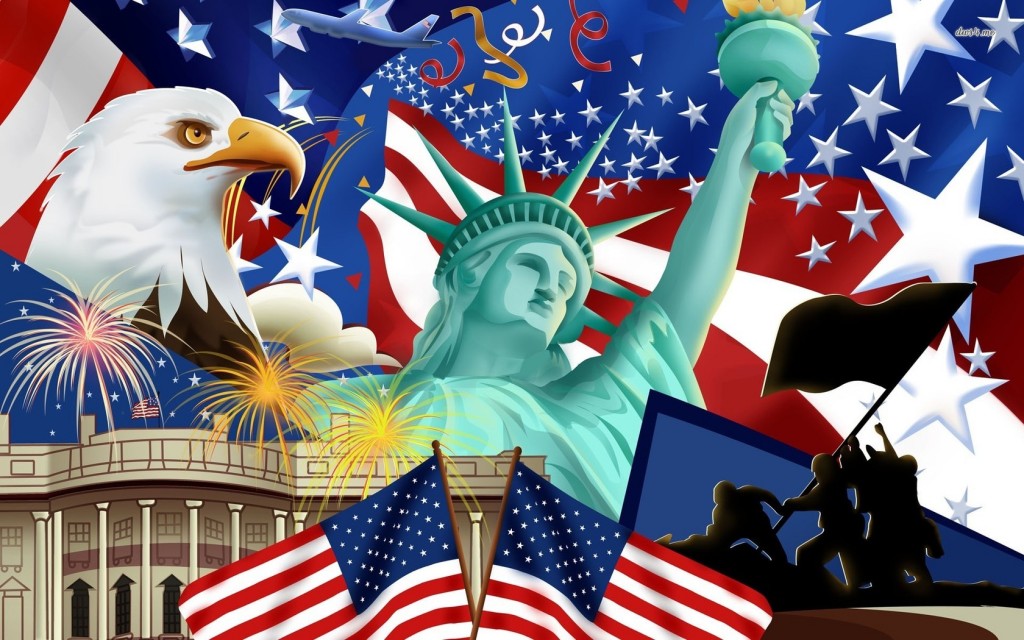History is filled with very important symbols – not only people like George Washington and John Adams, but things like the flag and the Declaration of Independence. But what is important – the actual person or document, or the spirit that these hold for us? Of course these are secular symbols and for now, anyway, I will lay aside a discussion of sacred symbols as I believe we are talking about two very different things. Or are we?
For the last several months I have been engaged in a research project concerning sermons that were preached at the time of the American Revolution, more specifically, on the days set aside in our land for humiliation, fasting, and prayer. These were days, not usually a Sunday, when colonial Americans would come to their respective churches to hear patriotic sermons and to be called to a sense of reconciliation. There was a shift in tone as we moved into military action against Great Britain, but the message was still the same: In the words of Abigail Adams, “He who neglects his duty to his Maker may well be expected to be deficient and insincere in his duty towards the public.” Duty towards one’s maker made him a better patriot.
At Plymouth Harbor there is a Roman Doric portico containing a rock with the date of 1620 carved on it. This temple contains a relic, a relic of the founding of our nation. In the words of the Frenchman Alexis de Tocqueville, “This Rock has become an object of veneration in the United States. I have seen bits of it carefully preserved in several towns in the Union. Does this sufficiently show that all human power and greatness is in the soul of man? Here is a stone which the feet of a few outcasts pressed for an instant; and the stone becomes famous; it is treasured by a great nation; its very dust is shared as a relic.” It would seem, by its placement in a temple, that this rock is sacred and is deserving of veneration. But what do we truly know about the history of those who first stepped foot on that rock? Are their deeds and actions worthy of veneration or is it the desire to be free, free to worship however we feel called, the important part of the story? If we lose the symbolism in the symbol it simply becomes an idol, and idols should never be worshipped.
During the American Revolution, and most wars for that matter, soldiers carried Bibles with them into battle. Religion was very much part of the fabric of American life in the Colonies, and the soldiers believed that the Bible would protect them in battle. They held the Bible in a very sacred position; almost more than the words and spirituality itself, the book was sacred and it protected them in battle.
At the National Archives in Washington, D.C., one can see the original Declaration of Independence and the Constitution. These are displayed behind climate-controlled, bullet-proof glass that descends into a safe below ground when the Archives close to the public. The room they are kept in has special lighting designed so that the documents do not fade, and special care and attention are given to preserve them from all harm. Sometimes, it seems, we give more attention to the document then we do to what is written on it and the spirit that is contains.
Before Thomas Jefferson took pen to paper the words he wrote were created in his mind, based on and influenced by many things, religion being one of them. He spoke in terms of biblical writers and of inalienable rights for all of humanity (I know he said all men) that would go forth into history. He not only wrote these words for the American Colonies but for all of humanity for all time. He set forth a sense of natural law that has influenced every aspect of not only the United States, but many other countries around the world. Each and every word was chosen precisely for its meaning, a meaning that was termed treason by the government of Great Britain, and words that had never been written before.
But words only have meaning if they are put into action, and their transforming power is realized. The Bible is truly sacred, but if all we do is carry it around it becomes just another book. The words written on those pages have to become part of the fabric of our lives if they are to truly have the meaning that Jefferson intended them to have. Otherwise, his effort and the lives of many others was in vain.
Do symbols matter? I believe they do, but only if those symbols go beyond the cloth and paper and stone and become part of each one of us. Next time you hang your flag outside your home, consider the lives and the more than 200-year history that have brought us to this time, and take it into your heart and your mind.
This essay originally appeared in the Quaboag Current, and the Tantasqua Town Common.

